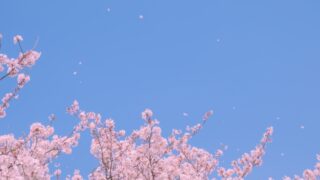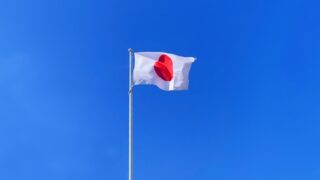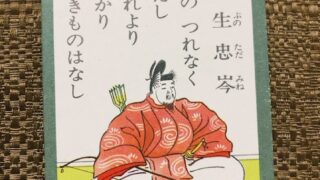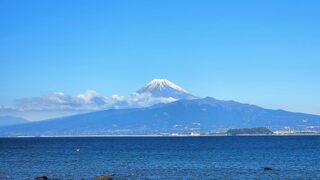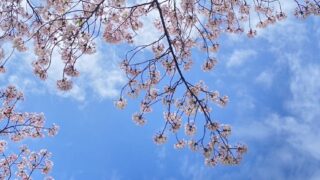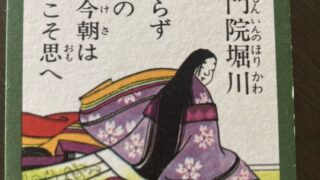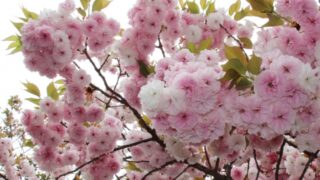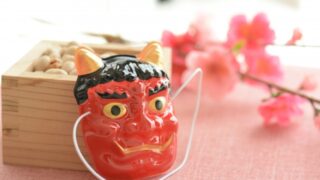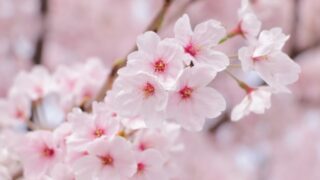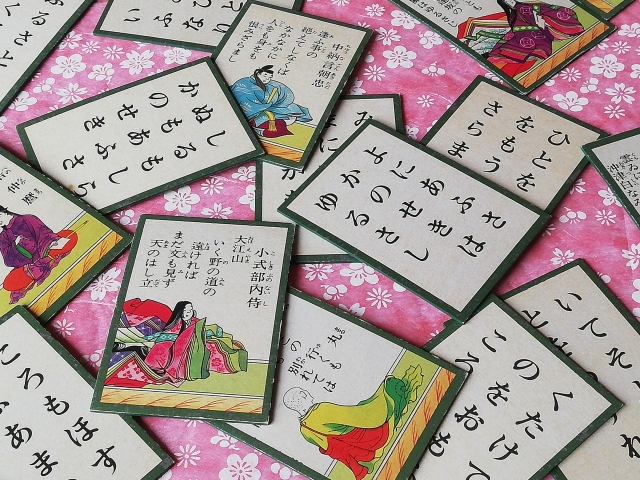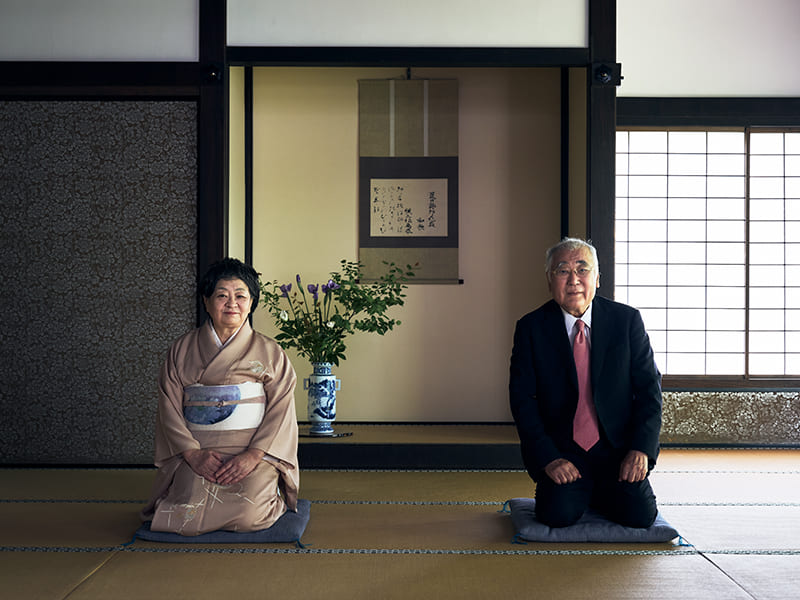5月27日は百人一首の日です。藤原定家という歌人が百人一首を完成させた日が1235年5月27日だったと言われています。そのため、5月27日は百人一首の日とよばれるようになりました。祝日ではありませんが、京都では百人一首に関係するイベントが数多く開かれます。
祝日ではありません。
May 27 is the day of the Hyakunin Isshu. It is said that a poet named Fujiwara no Teika completed the Hyakunin Isshu on May 27, 1235. Therefore, May 27 is called Hyakunin Isshu Day. Although it is not a national holiday, many events related to the Hyakunin Isshu are held in Kyoto.
It’s not a National holiday.
時代 era
藤原定家(1162-1241)の生きた時代は、貴族中心の世の中が終わり、武士中心の世の中になる時代です。大きな争いの後、政治の中心が京都から今の神奈川県にある鎌倉にうつります。
当時の上皇は政治への影響力を取り戻そうとしましたが、失敗に終わります。そのような状況の中、上皇は定家に和歌集の編纂を命じます。この和歌集が「古今和歌集」です。和歌は貴族の教養を象徴するものです。どのような気持ちで和歌集を作るよう命じたか、想像できる気がします。
貴族の力が弱くなっていく一方で、貴族の文化が華やかになっていく時代です。
The period in which Fujiwara no Teika (1162-1241) lived was a time when the aristocracy-centered society ended and the samurai-centered society began to start. After a major conflict, the center of politics was transferred from Kyoto to Kamakura in today’s Kanagawa Prefecture.
The retired emperor of the time tried to regain political influence but failed. Under such circumstances, he ordered Teika to compile a collection of waka poems. This collection of waka poems is the Kokin Waka Shu. Waka poems symbolize the cultivation of the nobility. One can imagine how he felt when he ordered the compilation of the waka anthology.
This was a time when the power of the nobility was weakening, while the culture of the nobility was flourishing.
百人一首
「百枚の色紙に書かれた歌で、別荘を飾りたい。歌を選んで、色紙に書いてほしい。」
当時の有名歌人、藤原定家は友人に頼まれました。定家は7世紀から13世紀初めまでの歌人の歌を一人一首ずつ選び、色紙に書いて送りました。この時選ばれた歌が、百人一首と呼ばれるようになります。
歌は定家が自由に選んでいます。恋の歌43首、四季の歌32首、その他の歌が21首あります。
I want to decorate my villa with a hundred waka written on a hundred pieces of colored paper. I want you to choose 100 waka and write these on 100 pieces of colored paper.”
Fujiwara no Teika, a famous poet of the time, was asked by a friend to do so. Teika selected poems by poets from the 7th century to the early 13th century, one by one, and wrote each poem on a piece of colored paper and sent it to his friend. The poems selected at this time came to be known as the Hyakunin Isshu.
The poems were freely chosen by Teika. There are 43 poems about love, 32 poems about the four seasons, and 21 other poems.
藤原定家
藤原定家は、政治家であり、歌人でもありました。
数多くの美しい歌を残しました。「美」にこだわった歌人だと言われています。また、定家は文学研究者としても知られています。
藤原定家の子孫、冷泉家は、今でも京都で和歌や古典文学の伝統を守り続けています。冷泉家については、以下のウェブサイトをご覧ください。
Fujiwara no Teika was a statesman and poet.
He left many beautiful poems. He is said to have been a poet who was particular about beauty. Teika is also known as a researcher of literature.
The descendants of Fujiwara no Teika, the Reizei family, still preserve the tradition of waka poetry and classical literature in Kyoto. For more information on the Reizei family, please visit the following websites
藤原定家の日記によると、定家は若いころから体が弱かったようです。また、政治家としての出世にはあまり恵まれなかったようです。穏やかな性格ではなかったと言われています。
「幸せな人の話や文章はおもしろくない。」とよく言われます。定家の思うようにならない人生が、彼の歌に強烈な美しさを注ぎ込んだのかもしれません。
According to the diary of Fujiwara no Teika, Teika was physically weak from his youth. He also had little success in his political career. Also, it is said that he did not have a gentle personality.
It is often said, “The stories and writings of happy people are not interesting.” Perhaps Teika’s life, which did not turn out the way he wanted, may have infused his poems with intense beauty.
今日もここまで読んでくれてありがとうございました。今日は百人一首の日なので、ブログの他の記事も読んでもらえるとうれしいです。
Thank you for reading this far today. Since today is the day of the Hyakunin Isshu, I hope you will also read the other articles on the blog.
令和五年五月二十七日
Mariko About me

